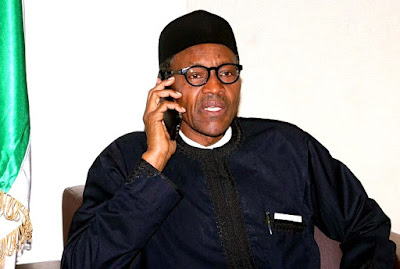By Amanze Obi
Nigerians, no doubt, are confused at the moment. The people have too many
issues to grapple with at the same time. One is as urgent as the other. The
scenarios are so confusing that the people do not seem to know which one to
approach first. This being the case, it will be a Herculean task to seek to
pigeonhole the whole of the confusing set-up here. But we can try our hands on
just one of them today, namely, the health of the country’s President,
Muhammadu Buhari. This is one issue that clearly spells confusion. But let
us begin from the beginning.
 |
| *Buhari |
Some time this January, it was announced that the President was
going on a 10-day vacation in London London
In the midst of the confusion, it was thought that the President’s
lieutenants would clear the air. But Nigerians were to discover to their
chagrin that those who they thought knew something about the health of the
President were as confused as the rest of the people. Where the people expected
clarification, the President’s agents presented them with something more
confusing. If you thought that the agents would build their story around the
initial anchor, which suggested that the President was on medical vacation, you
were dead wrong. The agents had abandoned that storyline and opted for another.
The story was amended to read that the President was not ill and, therefore,
not admitted in any hospital, be it in London or
Germany Nigeria
Then the agents stepped out to inform us that the President could
not return on the date earlier announced because his doctors in the United Kingdom Nigeria

















